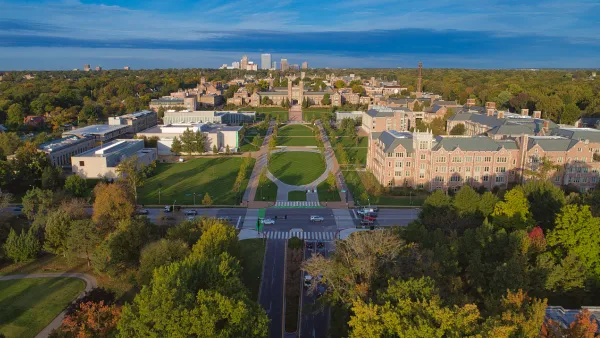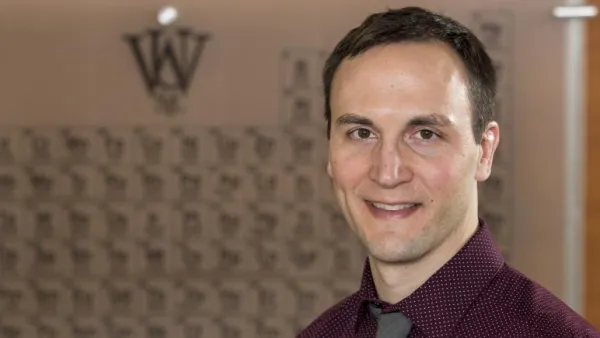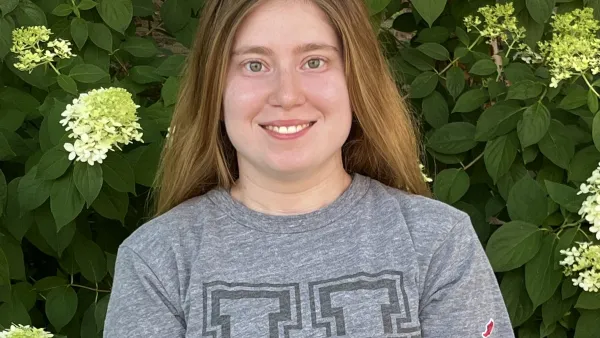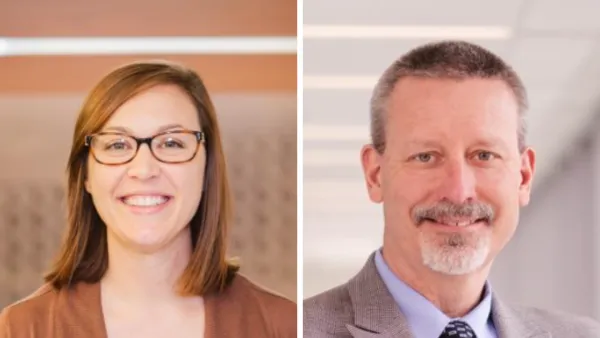Chemistry graduate student Austin Moyle is part of a growing network of safety partners fostering an inclusive culture of safety at institutions across the country.

For Austin Moyle, a graduate student working with Michael Gross in the Department of Chemistry in Arts & Sciences, chemical safety is inextricably tied to environmental justice. “As an undergraduate, I studied sociology and anthropology in addition to chemistry. Combining those disciplines led me to understand how chemical exposure often hurts vulnerable populations disproportionately – for example, Agent Orange in Vietnam or lead in the drinking water in Flint, Michigan,” Moyle explained. “As chemists, the care we bring to our own research environment today sets the tone for future decisions in industry, government, and academia that could affect many different groups.”
Moyle has served on chemistry’s departmental safety committee and peer safety committee since his first year at Washington University. He is also a safety officer for the Gross Lab in the NIH/NIGMS Mass Spectrometry Resource.
Moyle’s commitment to safety reflects that of the Department of Chemistry at large. In 2018, the Campus Safety, Health, and Environmental Management Association (CSHEMA) and Association of Public and Land-grant Universities (APLU) recognized the department with an Innovation Award for its outstanding program that improves research safety on campus. In 2019, the chemistry department sent Moyle, along with a group of fellow graduate students and Professor Rich Loomis, to Exxon Mobil's Partners in Academic Lab Safety (PALS) conference in Baytown, Texas where they presented about safety at WashU, heard from other universities about their approaches to safety, and learned about industrial safety standards and culture. At PALS, Moyle also realized from conversations with graduate students at other universities that WashU chemistry is exceptional in its collaborative and constructive relationship with WashU’s office of Environmental Health and Safety.
This positive conference experience spurred Moyle’s interest in cultivating relationships with safety partners and spreading the Department of Chemistry’s successes in safety to the broader chemistry community. In February, the chemistry department sponsored Moyle’s attendance at the American Chemical Society (ACS) Division of Chemical Health and Safety (CHAS) workshop, “Empowering Academic Researchers to Strengthen Safety Culture,” giving him the opportunity to do just that. Forty-eight graduate students, faculty, and safety staff from 28 different institutions attended the workshop.
“Building relationships with other graduate students is so important for sharing empathy and experiences about the PhD journey, especially when it comes to the pressures of research and how this may affect safety,” Moyle said. At the ACS CHAS workshop, Moyle met event leader Jessica Martin, a graduate student at the University of Connecticut, who hosts weekly virtual journal clubs on lab safety and recently published a detailed look at the structure and activities of currently active lab safety teams (LSTs), including WashU chemistry’s safety committees.

“I’m excited to be a part of this growing network of researchers who openly discuss safety,” Moyle added. “Having frequent positive interactions with lab safety professionals allows for a more proactive and preventative approach to safety, rather than a reactive or punitive one. Because I know other safety officers personally, I can reach out to them with questions about safety in my lab to get their input. Open channels for discussion help make all our labs safer, better places to work.”
In addition to developing personal connections with other lab safety teams, the ACS CHAS workshop also provided an opportunity to hone basic safety skills, including risk assessment.
Reflecting on his experience, Moyle noted that there’s still more work to do: “Although the workshop had great strategies for community building and practical steps, a common theme among the graduate students was that they were overcommitted and overinvolved with extracurriculars while trying to keep up with the demands of independent research. Many graduate students feel solely responsible for maintaining their LSTs, which makes faculty and departmental leadership support critical.”
Learn more about the next ACS CHAS workshop, which is scheduled for October 17, and will include Moyle as a moderator. To register, visit their Eventbrite page.



